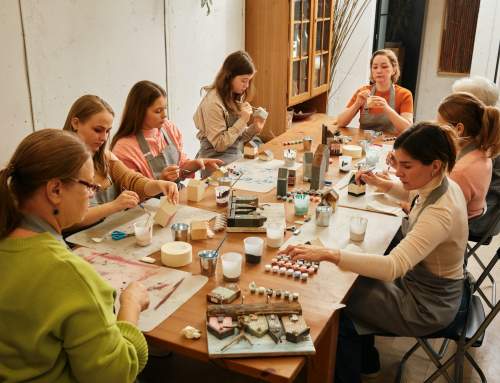Have you ever heard people say “I love my career” and wondered “what are they doing that I am not?”. Do you long for a job that makes you spring out of bed on a Monday morning?
Over the course of your career, it’s likely you will work approximately 84,480 hours. You will spend more time at work than you will with your children and loved ones. That’s a lot of important time doing something you don’t love. It is almost insane to spend that much time doing something that doesn’t feel right.
It is said it takes 10,000 hours to master a skill. That means over your career you have the capacity to be a master eight-times over. So much time, so many possibilities.
Why Don’t I Love My Career?
If you don’t love your career, you’re not alone. A survey conducted by Deloitte in 2017 showed that despite US companies spending more than $1 billion on employee engagement, only 13 percent of employees felt passionate about their job.
It can feel like a first-world problem to not like your job. After all you do have a job, right? You can put food on the table and pay your bills so, shouldn’t you be grateful?
Everyone has their off-days but research conducted by Jonathan Dirlam and Hui Zeng from the University of Ohio shows job dissatisfaction in your 20s and 30s can have cumulative effects that impact your health in your 40s and beyond.
“The higher levels of mental health problems for those with low job satisfaction may be a precursor to future physical problems. Increased anxiety and depression could lead to cardiovascular or other health problems that won’t show up until they are older,” said Mr Zheng.
What It Means to be Happy
Do you ever wonder why people climb Mt Everest? It’s cold, wet and windy. Mountaineers risk frostbite or even worse, death. It’s hard work and most certainly, doesn’t make them happy.
For mountaineers, striving to reach the pinnacle despite the risks and discomfort spurs them on to plan their next ascent no sooner than they’ve reached base camp. It gives them purpose. It drives everything they do, it becomes an extension of their identity that others connect with.
Human Flourishing
In his book Flourishing, psychologist Martin Seligman defines human happiness and well-being using the acronym PERMA:
- Positive emotion (of which happiness and life satisfaction are all aspects)
- Engagement
- Relationships
- Meaning
- Achievement
No one element defines well-being but each contributes to it.
Suffering is something all humans experience, and it is often beyond our control, so being happy all the time isn’t realistic. But flourishing is within your grasp.
So, how do you find a career that you love, so that you can flourish?
It can be broken down into three key steps.
1. Explore and understand your character
Many people believe finding career happiness is defined by doing something you love like cooking, gardening or playing piano. However, the pressure to earn money doing something you love can sap the joy out of it.
You also have to be realistic. You may love playing golf but if don’t have the skill then no amount of trying and training will help you crack the pro circuit.
Beyond hobbies that you enjoy, consider what is fundamental to your nature. Do you naturally gravitate towards people and enjoy asking them questions? Or are you a problem solver who likes to things apart and put them back together again?
Think back to when you were a child before you were burdened with the responsibility of earning money. What did you love to do, naturally? Ask family and friends how they define your character. Or work with an independent career coach who will give you unbiased feedback.
Understanding your fundamental nature can open up a world of career possibilities. For example, people who enjoy pulling things apart and putting them back together again suit a range of careers like being a surgeon, a mechanic or a sculptor.
2. Where do you thrive?
Finding the best environment for your personality is a key component to finding a career you love. Yet the work environment is something many people over look.
Following on from the example above, if you love pulling things apart and putting them back together again but the smell of a hospital makes you choke, then a career in medicine is not going to make you happy. Likewise, if you enjoy writing but need solitude to do your best work, a loud workplace won’t nurture your creativity.
Another factor to consider is it may be your work environment that you don’t enjoy and not your career. For example, you may work in marketing in a government organisation that is bound by rules and moves at a slow pace. However, your personality might be better suited to a fast-paced advertising agency where decisions are made quickly and deadlines are paramount. Finding the right environment for you can save you chucking in a career you’ve spent years building.
3. Define Success in Your Own Terms
There are more ways to define success than your salary and job title.
In many instances, definitions of success can be influenced by family. Well-intentioned parents who want their children to be comfortable in life set career and financial expectations before their children leave school. And the pressure to please Mum and Dad can carry on into middle-age.
So ask yourself “what do I mean by success?”. Listen closely and you’ll find you have a quiet inner voice that knows the answer. For some, it may be working part-time so they can enjoy spending time with their children while they are young. For others, it may be the flexibility to travel and explore the world.
Career advisor and TEDX presenter, Erica Sonsa, encourages people to be open to stories that provide different definitions of success.
“Your career is your chance to write your own story, so hold the pen and write the next chapter,” said Ms Sonsa.
To find a career you love, discover your true nature, work out where you fit and define success on your own terms.
For more information:
Watch
Read
- Flourishing – a visionary new understanding of happiness and well-being, Martin E.P. Seligman (2011)
- Do you need help being human?
- Lousy jobs hurt your health by the time you’re in your 40s







